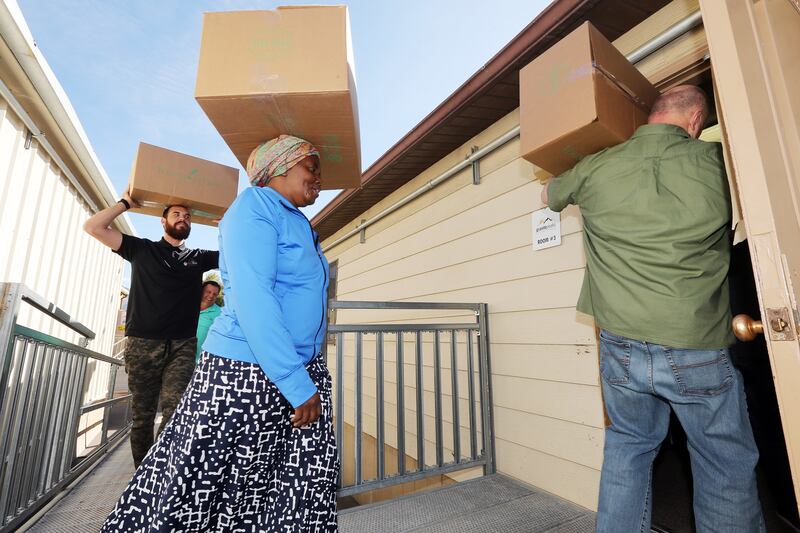Last week, Gov. Gary Herbert did something unexpected in Republican Party politics these days. He sent a letter to the president informing him that Utah wants more, not fewer, refugees.
It was an inspiring reminder of what the people of the Beehive State value — principles born of the state’s origins as a place where the nonnative population consisted of refugees fleeing religious persecution.
That history ought to remind people everywhere of what it means to be hounded, persecuted and, in many cases, killed for matters of conscience. The director of migration and refugee services for Catholic Community Services of Utah reacted to the governor’s letter by saying, “It is our responsibility to do the right thing, to welcome these strangers who are fleeing and don’t have anyone else to help.” He called the need to help these people “a moral obligation,” and he is exactly right.
He also speaks from experience. The director, Aden Batar, is a refugee from Somalia who came to Utah 25 years ago with his wife and two children in a desperate search for safety.
The state is filled with many examples of refugees who came here with little and took advantage of freedom and liberty to build prosperous lives. Two years ago, this newspaper featured Eumbo Kasongo, who went from being forced to be a child soldier in the Congo who, when he was 19, had never spent a day in school, to being a surgical technician at St. Mark’s Hospital.
These are just two of many similar stories. Refugees face difficult challenges coming to a new land where the language and customs are unfamiliar. But with community support and the opportunities of a free society, many of them build lives that would have been unthinkable in their native lands.
A 2017 study by the National Bureau of Economic Research found that, while adult refugees tend to earn less than native-born Americans over time, during their first 20 years in the United States they pay $21,000 more in taxes than they use in welfare benefits, on average.
Meanwhile, their love of freedom and desire to work is a renewal of the American spirit and an inspiration to all around them.
In spite of this evidence, refugees have become political fodder in recent years. Herbert was responding to a decision by President Donald Trump to cut the number of refugees the U.S. will accept each year from 30,000 to a maximum of 18,000. He supplemented this with an executive order that requires state and local governments to provide written consent in order to receive refugees.
Herbert has shown that Utah isn’t going to let politics interfere with humanity, or with paying forward a benefit that allowed so many nonnative settlers to find safety, security and opportunity here.
Ostensibly, the idea was to give conservative states the power to overrule their more liberal cities that might want to take refugees.
But Herbert has shown that Utah isn’t going to let politics interfere with humanity, or with paying forward a benefit that allowed so many nonnative settlers to find safety, security and opportunity here.
A spokesman for the governor said refugees “make friends, get jobs, contribute to their communities and become a beautiful part of the fabric of our state.”
We hope it is ever so.

